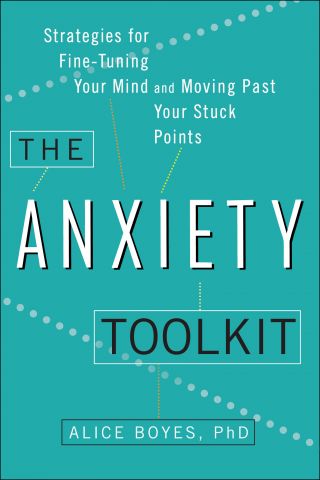Anxiety
Test Anxiety - Quick Tips
Hope to cope with anxiety about taking tests.
Posted February 2, 2015

Having some anxiety before tests is natural, even if you know the material well. Here are some quick and practical tips for coping with test anxiety.
Reframe tests.
Try thinking about a test as a positive opportunity to show what you know rather than something that is designed to catch you out, or highlight what you don't know.
The above principle is especially true for verbal or interview-style tests where you're interacting with your examiner. Practical tests, like driving tests, are another example where you want to see the test as an opportunity to demonstrate your skills rather than thinking the examiner is just trying to catch you doing something wrong.
Remember the examiner wants you to pass.
Try acceptance.
Once you go into a test, you've studied all you can and the test questions are set to whatever they are. What will be, will be at this point. You can only do your best and work systematically through the test. Once you start, scan the test for some questions you feel confident in answering. You can come back to the questions you feel less confident about later. Getting a few answers under your belt can help stimulate your thinking about questions that initially seem daunting.
Before you start writing an answer, ask yourself if you're interpreting the question the correct way.
Sometimes test anxiety can lead to rushing into starting an answer that ends up being an answer to a related question but not the actual test question. Once you've formed your initial snap reactions to a question, re-read the question to make sure you're answering the specific question being asked.
Take practice tests.
For multi-choice exams, doing practice tests will allow you to very easily see how well you know the material. For written tests with essay style answers, ask your teacher for some practice questions or use old exam papers. Your teacher may be willing to give you some feedback on your answers. If this isn't an option, try taking practice tests with your other student colleagues and comparing answers.
Ask for feedback on tests you've already taken.
It sometimes helpful to see studying for tests and test taking as specific skills, that are somewhat independent of the specific material and topics you're studying.
If you want to improve your test taking skills, you might ask for feedback after you've received a test paper back. This feedback may be available from your instructor or from a service within your school that can give you feedback on how you've structured your answers rather than about the topic of the test.
If you have friends who are particularly good at answering essay questions on tests, you might ask them if you can look at their papers once they receive them back. This can give you some ideas about how they structure their answers.
Find out the key points that examiners are looking for.
For example, in my clinical psychology exams, the examiners were often particularly concerned about whether a proper safety assessment was done (meaning checking if the person was suicidal etc). Likewise, in something like a driving test, the examiners are most concerned about safety issues. Where possible, find out if there are key, common mistakes people make that can result in failing the test. Where you know the examiners are particularly concerned with whether you demonstrate certain skills, make sure you hit those marks.
Examine the evidence.
Ask yourself the following questions:
How many tests have you taken previously? How many have you passed?
What is the overall pass/fail rate of the test you're about to take.
These figures will give you a good indicator of your likelihood of passing your upcoming test, and help you correct any overly negative expectations.
Ask yourself how you'd cope if you failed.
If you're still anxious, try this. It might seem pessimistic but vividly imagine what you'd do if you failed. Imagine all the details like how you'd tell people and how they might react. With most tests there is a procedure for retaking the test. Try imagine yourself calmly working through the steps involved in that process. The goal of this process is for you to think about how you'd feel distraught, and perhaps embarrassed, but that you would cope.

Purchase my book
The Anxiety Toolkit - Strategies for Fine-Tuning Your Mind and Moving Past Your Stuck Points.
Subscribe to Dr. Alice Boyes' articles
You can get an email alert whenever Dr. Alice Boyes writes a new blog article - Subscribe.
You can read my prior articles for Psychology Today here.
Alice's Twitter @DrAliceBoyes. Top image under CC Zero license.




